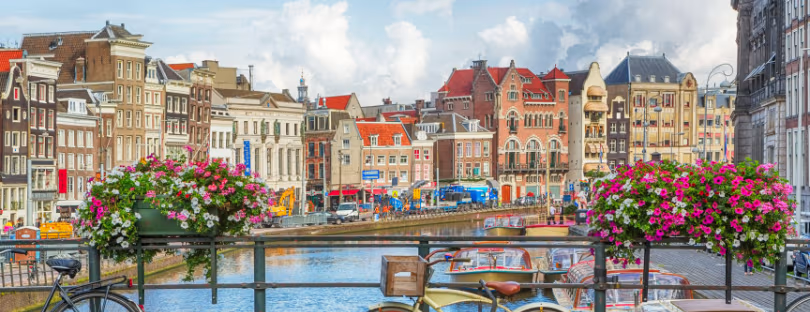
Amsterdam Has the Highest Tourist Tax in Europe
Amsterdam has officially claimed the top spot in Europe—for tourist taxes.
Starting in 2024, visitors staying overnight in the Dutch capital are now subject to a 12.5% tourist tax, the highest of any city in Europe. This new rate applies to all forms of paid accommodation, from hotels and guesthouses to holiday rentals and campsites. Cruise ship passengers, meanwhile, face a flat €14.50 per person port tax.
City officials say the steep increase is necessary to fund the upkeep of the city and relieve pressure on locals from the intense volume of tourism. Amsterdam expects to generate around €262 million this year alone through these taxes.
“Visitors will now contribute more fairly to the costs they incur—just like residents do,” said city representatives, referencing public services such as street cleaning, law enforcement, and infrastructure maintenance.
A New Strategy for an Old Problem
Amsterdam has long struggled with overtourism. The city of 900,000 residents sees over 20 million tourists annually, drawn by its canals, museums, nightlife, and liberal attitudes.
In the past, city leaders have tried various strategies to rein in disruptive tourism, from regulating Airbnb rentals to banning cannabis smoking in certain public areas. The updated tax policy is just the latest attempt to strike a balance between welcoming visitors and maintaining livability for residents.
Interestingly, officials are no longer framing the tax as a deterrent—but as a means of accountability and financial contribution.
Will the Tax Make a Difference?
Experts say the new tax is unlikely to discourage tourism. Even at 12.5%, it’s a small price hike for most travelers. According to tourism analysts, a significant drop in visitor numbers would likely require a threefold increase in tax rates.
Instead, the concern is that some visitors may opt to stay outside city limits and commute in, potentially shifting the burden to surrounding municipalities while still straining Amsterdam’s public spaces during the day.
Amsterdam Isn’t Alone
The Dutch capital is part of a growing trend. Across Europe, destinations like Venice, Barcelona, Lisbon, and Paris are also raising or introducing tourist taxes. Many cities are grappling with the same question: how to welcome the economic benefits of tourism without letting it overwhelm local life.
In Amsterdam’s case, additional restrictions are also on the way. Cruise ship traffic is set to be halved by 2026, and new hotels are banned in certain neighborhoods. The city has even launched digital ad campaigns discouraging disruptive behavior, especially among young party-goers.
What Travelers Should Know
If you’re planning a trip to Amsterdam:
- Expect a 12.5% surcharge on your accommodation.
- Cruise visitors pay a €14.50 per-person tax, even if not staying overnight.
- Book early and budget accordingly, especially as peak seasons approach.
While these taxes won’t break most travel budgets, they are a reminder that mass tourism comes with a cost—for both visitors and the places they love.










